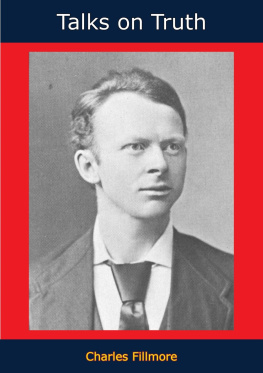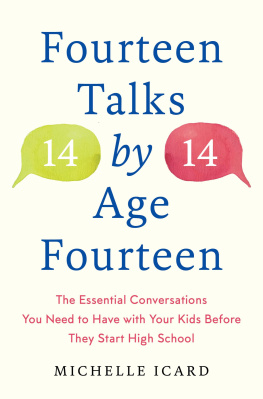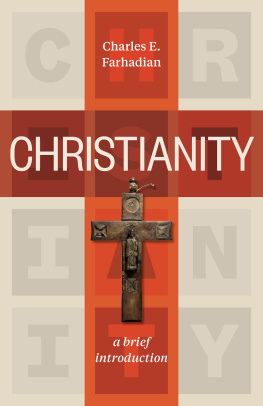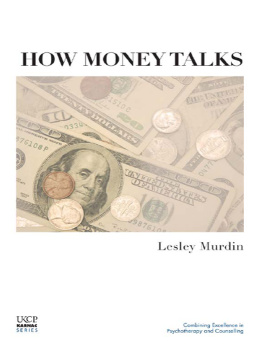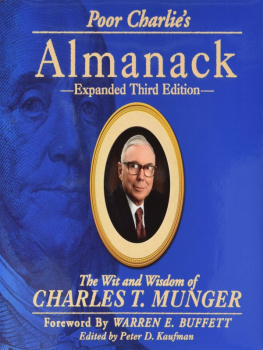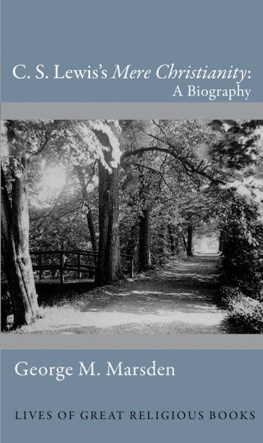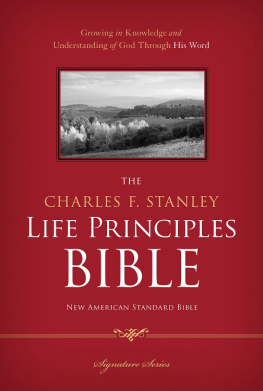Charles Fillmore - Talks on Truth
Here you can read online Charles Fillmore - Talks on Truth full text of the book (entire story) in english for free. Download pdf and epub, get meaning, cover and reviews about this ebook. year: 2017, publisher: Papamoa Press, genre: Science. Description of the work, (preface) as well as reviews are available. Best literature library LitArk.com created for fans of good reading and offers a wide selection of genres:
Romance novel
Science fiction
Adventure
Detective
Science
History
Home and family
Prose
Art
Politics
Computer
Non-fiction
Religion
Business
Children
Humor
Choose a favorite category and find really read worthwhile books. Enjoy immersion in the world of imagination, feel the emotions of the characters or learn something new for yourself, make an fascinating discovery.
- Book:Talks on Truth
- Author:
- Publisher:Papamoa Press
- Genre:
- Year:2017
- Rating:5 / 5
- Favourites:Add to favourites
- Your mark:
- 100
- 1
- 2
- 3
- 4
- 5
Talks on Truth: summary, description and annotation
We offer to read an annotation, description, summary or preface (depends on what the author of the book "Talks on Truth" wrote himself). If you haven't found the necessary information about the book — write in the comments, we will try to find it.
Charles Fillmore: author's other books
Who wrote Talks on Truth? Find out the surname, the name of the author of the book and a list of all author's works by series.
Talks on Truth — read online for free the complete book (whole text) full work
Below is the text of the book, divided by pages. System saving the place of the last page read, allows you to conveniently read the book "Talks on Truth" online for free, without having to search again every time where you left off. Put a bookmark, and you can go to the page where you finished reading at any time.
Font size:
Interval:
Bookmark:


This edition is published by Muriwai Books www.pp-publishing.com
To join our mailing list for new titles or for issues with our books muriwaibooks@gmail.com
Or on Facebook
Text originally published in 1926 under the same title.
Muriwai Books 2017, all rights reserved. No part of this publication may be reproduced, stored in a retrieval system or transmitted by any means, electrical, mechanical or otherwise without the written permission of the copyright holder.
Publishers Note
Although in most cases we have retained the Authors original spelling and grammar to authentically reproduce the work of the Author and the original intent of such material, some additional notes and clarifications have been added for the modern readers benefit.
We have also made every effort to include all maps and illustrations of the original edition the limitations of formatting do not allow of including larger maps, we will upload as many of these maps as possible.
TALKS ON TRUTH
BY
CHARLES FILLMORE
Contents
THIS IS distinctly the age of reforms. Never before have there been such widespread and persistent efforts by both men and women to right the wrongs of religion, society, and politics.
2. From the hearts and the souls of millions goes up the cry, Set us free from our burdens! Every imaginable scheme of release is proposed, and each advocate of a panacea for the peoples ills stoutly affirms his to be the only remedy that has virtue. It is observed that the majority of these reformers are clamorous that laws be enacted to force their theories upon the people. In this they are following the same methods to cure the ills of the body politic that they have followed in curing the body physical, and the results will surely be of like impotency.
3. Laws, whether natural or artificial, are but the evidence of an unseen power. They are simply effects, and effects have no power in themselves.
When man looks to them for help in any condition of inharmony, he is departing from a universally recognized principle of sequence. God, Spirit or Mindwhatever you choose to name itis the supreme dictator, and thought is its only mode of manifestation. Mind generates thought perpetually; all the harmonious and permanent affairs of men, and the innumerable systems of the infinite cosmos, are moved in majestic measures by its steady flow.
4. All power has its birth in the silence. There is no exception to this rule in all the evidence of life. Noise is the dying vibration of a spent force. All the clatter of visibility, from the harangue of the ward politician to the thunders roar, is but evidence of exhausted power. As well try to control the lightnings flash by wrapping the thunder about it, as attempt to regulate mind by statutory enactments.
5. All reforms must begin with their cause. Their cause is mind, and mind does all its work in the realm of silence, which in reality is the only realm where sound and power go hand in hand. The visible outer world, with all its social, religious, and political laws, customs, and ceremonies, is but the flimsy screen upon which mind throws its incongruous opinions. Gods thought is love, the inherent potentiality of the God man, which knows neither persons nor things, mine nor thine, but a universal brotherhood in which perfect equity and justice reign in joint supremacy. All philosophers and sages have recognized this silent cause, this perpetual outflow from center to circumference.
Emerson says of Plato: He was born to behold the self-evolving power of Spirit, endless generator of new ends; a power which is the key at once to the centrality and the evanescence of things. Jesus Christ said: The kingdom of God is within you. Seek ye first his kingdom, and his righteousness; and all these things shall be added unto you. Elijah found God, not in the whirlwind, or the earthquake, or the fire, but in the still small voice.
6. All men who have moved the world to better things have received their inspiration from the Spirit within and have always looked to it for instruction. God is not a person who has set creation in motion and gone away and left it to run down like a clock. God is Spirit, infinite Mind, the immanent force and intelligence everywhere manifest in nature. God is the silent voice that speaks into visibility all the life there is. This power builds with hands deft beyond the comprehension of man and keeps going, with all its intricate machinery, universe upon universe, one within another, yet never conflicting. All its building is from center to circumference. The evidence for this runs from the molecule and the atom of the physicist to the mighty swing of a universe of planets around their central sun.
7. Every act of man has its origin in thought, which is expressed into the phenomenal world from a mental center that is but a point of radiation for an energy that lies back of it. That point of radiation is the conscious I, which in its correct relation is one with Cause, and has at its command all the powers potential in Cause. The conscious I can look in two directionsto the outer world where the thoughts that rise within it give sensation and feeling, which ultimate in a moving panorama of visibility; or to the world within, whence all its life, power, and intelligence are derived. When the I looks wholly within, it loses all sense of the external; it is then as the Hindu yogi sitting under his banyan tree with his eyes riveted on the point of his nose, denying his very existence until his body is paralyzed. When it looks wholly without, upon sensation and feeling, it loses its bearings in the maze of its own thought creations. Then it builds up a belief of separateness from, and independence of, a causing power. Man sees only form, and makes his God a personal being located in a city of dimensions. This belief of separateness leads to ignorance, because all intelligence is derived from the one Divine Mind, and when the soul thinks itself something alone, it cuts itself off in consciousness from the fount of inspiration. Believing himself separate from his source, man loses sight of the divine harmony. He is like a musical note standing alone, looking upon other notes but having no definite place upon the great staff of nature, the grand symphony of life.
8. Life is a problem solvable by a principle whose essence is intelligence, which the wise man always consults. The ignorant and headstrong trusts to his intellect alone to carry him through, and he is always in a labyrinth of errors.
9. A belief prevails that God is somewhat inaccessible; that He can be approached only through certain religious ordinances; that is, a man must profess religion, pray in a formal way, and attend church in order to know God. But these are mere opinions that have been taught and accepted by those who perceive the letter instead of the spirit. For if God is Spirit, the principle of intelligence and life, everywhere present at all times, He must be just as accessible as a principle of mathematics and fully as free from formalism. When a mathematician finds that his answer to a problem is not correct, he consults the principle and works out the correct solution. He knows that all mathematical problems inhere in mathematical principles and that only through them can they be worked correctly. If he persistently ignored principles and blundered around in a jungle of experiments, he would be attempting to get up some other way, and he would prove himself a thief and a robber, for there is but one way. Jehovah God, infinite Mind in expression, is the way, and this Mind is always within reach of every man, woman, and child.
Next pageFont size:
Interval:
Bookmark:
Similar books «Talks on Truth»
Look at similar books to Talks on Truth. We have selected literature similar in name and meaning in the hope of providing readers with more options to find new, interesting, not yet read works.
Discussion, reviews of the book Talks on Truth and just readers' own opinions. Leave your comments, write what you think about the work, its meaning or the main characters. Specify what exactly you liked and what you didn't like, and why you think so.

